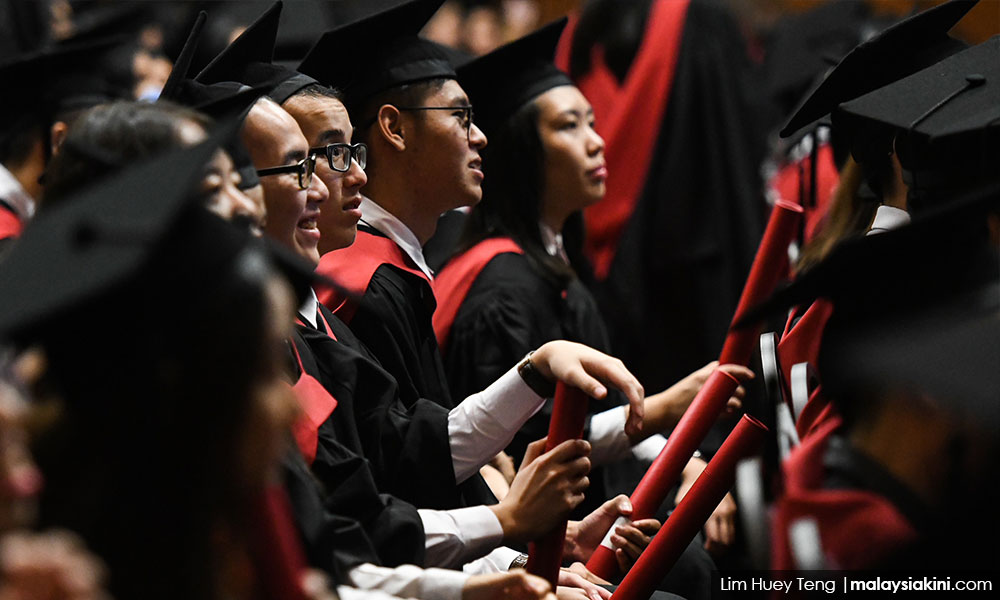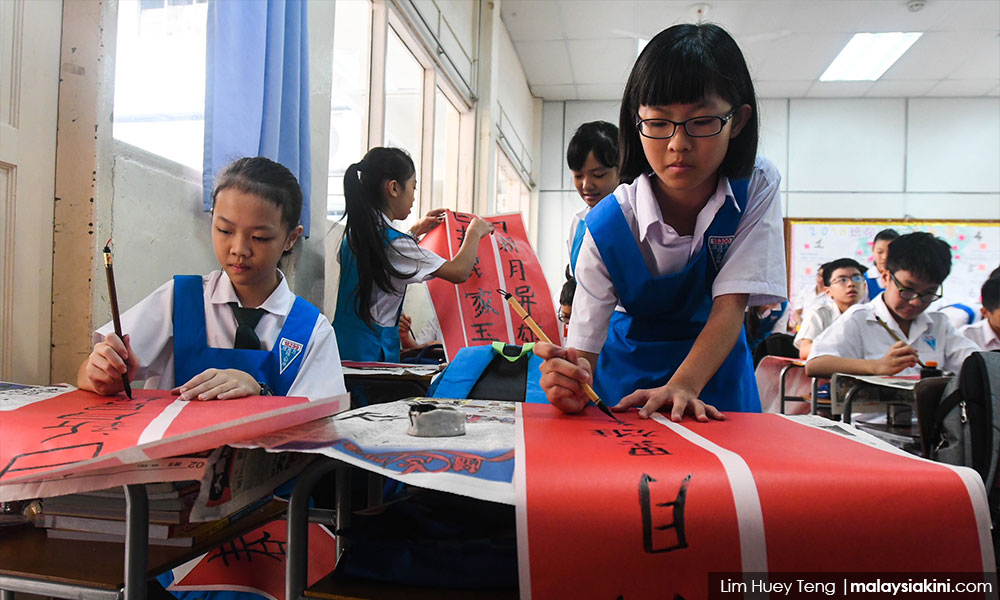COMMENT | After 61 years of racist policies, increasing wealth inequality, autocratic rule and acrimonious scandals, the BN manifesto merely promises populist goodies without the substantive reforms needed to carry our nation forward.
Such reforms are what democrats, human rights activists and progressive Malaysians expect from the BN manifesto.
Fundamentally, the manifesto lacks three vital changes sorely needed to take our country into a new beginning after sixty years of BN rule, namely: a race-free agenda to unify the nation; a progressive tax structure to redistribute wealth; and a truly democratically structured society.
1. Measures to prevent another 1MDB scandal
Any concerned Malaysian would have expected the government to introduce reforms to government financial institutions to ensure that scandals like 1MDB do not happen again.
Unfortunately, the government seems to be in denial and has not introduced any essential measure to check any future leakage of government funds.
2. Stripping PMO fat
Linked to the above failure to check financial accountability and transparency, the BN has not taken up the tip to trim the fat off the Prime Minister’s Office (PMO) from the Pakatan Harapan manifesto. The downsizing of the PMO and transfer of ministries to their rightful places outside the PMO should have been an essential reform to promote accountability and reserve more funds for other public expenditure.
3. An end to race-based policies
Instead of needs-based measures that target the lower-income and marginalised sectors, we are presented with the same divide-and-rule method of BN’s with the bumiputera agenda at the core of government policies.
Thus, Indians have now been specifically identified for special treatment that is aimed at increasing their numbers in premium schools and Mara institutions. But the manifesto does not specify by how much.
And what about the Chinese, Eurasians and the Orang Asli? Yes, the BN manifesto promises a bigger intake of non-bumiputeras into higher education, but it does not say by how much.

Are we going to see the usual charade that we have been treated to every general election when a few token places will be doled out like the few vernacular schools, the token few who manage to gain their citizenship and so forth?
It is indeed mind-boggling that after 61 years, our society can still accept that bumiputera citizens who can afford houses costing more than one million ringgit still expect discounts! If this is not race-based populism, what is it?
A needs-based policy would be more cost-effective and unifying to open the “bumiputeras only” institutions in this country to all Malaysians, especially when the civil and armed forces are now more than 95 percent bumiputera.
The NEP was scheduled to end in 1990 but has become a populist never-ending policy to win over the bumiputras while benefitting mainly the political elite.
Instead, it is common sense that poor rural Malaysians should be assisted based on their needs according to the particular economic sectors in which they live and work.
Today, with the lack of ethnic diversity in the civil and armed forces, it is high time that recruitment and promotion in these services are based on merit. If BN is serious about 1Malaysia, it should propose an expiry date for the NEP now!
4. BN finally recognises the UEC with strings attached
Forty-three years after the first Unified Examination was held, the BN government has finally recognised the Unified Examination Certificate (UEC) as a basis for entry into public universities, but with strings attached – UEC applicants must have SPM Malay credit and a pass in History.
Now, while the requirement of SPM Malay is reasonable for entry into the civil service and universities which instruct in Malay, it is not reasonable to require SPM Malay as a criterion for universities that use English as the medium of instruction. Nor is it reasonable to require SPM History if the applicant is going to study science courses.
This question is reasonable: Are applicants from Kazakhstan or India or Bosnia expected to have SPM Malay and History as well when they apply to study at Universiti Malaya? If not, why are UEC holders subject to these requirements?
Surely the National Transformation Programme is based on rational principles and not irrational prejudices.
It is also not clear if this recognition of the UEC applies to those who want to join the civil service or who want to enter the vocational and technical institutions in the country such as Universiti Teknologi Mara (UiTM) which, after all, are supported by Malaysian taxpayers of all ethnic origins.
5. Mother tongue schools still treated like stepchildren
The BN still treats vernacular schools like stepchildren instead of treating all mother tongue schools as part of the National Education System with guaranteed numbers and financial allocations according to the needs of the respective communities.

The BN manifesto has promised to build English-medium schools in Sabah and Sarawak, but what about building such schools for communities in areas like Petaling Jaya, Melaka, Johor Bahru or Penang where English is the mother tongue in some Malaysian homes?
6. When are elected local governments going to be returned to us?
Since the (temporary) abolition of elected local government in 1965 supposedly because of the Indonesian Confrontation, the BN government has suspended this vital part of Malaysian democracy. Is it not time to bring back elected local councils so that important social functions such as schools, transport, health, and even policing can be democratically and more efficiently carried out at the local level?
7. A truly democratic society
The BN manifesto does not mention the term limits for the prime minister, chief minister and menteri besar as Harapan has done.
The democratic principle behind the term limit for these posts is simply that elected officials can over time obtain too much power or authority, which thus makes them less representative of all the citizens. It is also to prevent chances of corruption.
As we have seen only recently, even within a two-term service, corporate interests including those in property and finance can provide inducements to the incumbent leaders such as drastic discounts on house purchases. There is clearly a correlation between the length of time a politician serves and the degree to which he/she has opportunities to engage in corruption.
After the inclusion of yet another draconian law, the Anti-Fake News Act, to the armoury of anti-democratic laws already existing in Malaysia, there is little chance that we will see any reforms in our society.
8. Progressive taxes on the super-rich
Like Harapan, there are no fiscal policies in the BN manifesto to redistribute wealth, never mind fundamental changes in economic policies, including nationalisation of utilities.
Malaysia is one of the few countries where the super-rich do not have to contribute part of their wealth to finance state welfare. We rank among the world’s top countries for illicit outflow of money.
What reforms does the BN manifesto propose to prevent tax evasion? The limited coverage has resulted in poor revenue generation.
Similarly, we do not see a higher marginal tax rate on high-income earners and a correspondingly lower tax rate for lower income earners; an incremental Capital Gains Tax on property; a progressive inheritance tax; a tax on all international financial transactions and hedge funds; and a progressive tax on all luxury goods.
Without sufficient revenue, individual income tax cannot provide substantial funds for poverty-lifting projects. Since BN talks about the need for GST to generate revenue, why aren’t there fiscal policies to tax the wealthiest households in our country?
Even a highly unequal society like the US taxes its wealthiest households at 45 percent. In Europe, they certainly have more to show for it - social services, unemployment benefits, a national health system and other social benefits.
Such social services and unemployment benefits and a national health system are infinitely more dignified benefits than 1Malaysia People’s Aid (BR1M) handouts.
9. Beyond GE14
It is high time that BN takes human rights seriously and respect all Malaysian citizens irrespective of ethnicity, religious beliefs, gender or sexuality so that we can collectively and democratically march forward as a unified nation. Furthermore, such development must be environmentally sustainable.
It is shocking that in the states under both BN and Harapan, and in the name of so-called development projects, deforestation and land reclamation are rampant with little concern for the environment, the public commons and the marginalised people living there.

A sustainable, just, democratic and progressive alternative calls for the participation of all stakeholders in local decision-making; a living wage and rights for all workers; a reasonable pension at retirement; affordable and liveable housing; free tertiary education (means tested for the well-off); elected local government; and commitment to international human rights practices and covenants.
Both BN and Harapan practise neoliberal ideologies that involves allowing private developers to buy up public assets. Such a practice has serious consequences in that it overrides and neglects the people’s interests and degrades our precious environment, which is regarded as a free resource.
As a result, we are left with polluted air, questionable water quality, and limited green commons. We want a government that will take the lead in sustainable development initiatives such as renewable energy, for the benefit of ordinary Malaysians and their environment. The current reliance on the private sector results in environmentally harmful and socially destructive projects.
A people’s government would enforce recycling measures, responsible waste disposal and enact laws to protect animal welfare.
Such a progressive government would also make it a priority to put the rights and livelihood of the Orang Asal at the top of the national agenda by recognizing their rights over the land they have been occupying for centuries, prohibiting logging in Orang Asal land and ensuring all Orang Asal villages have adequate social facilities and services.
KUA KIA SOONG is Suaram advisor.
The views expressed here are those of the author/contributor and do not necessarily represent the views of Malaysiakini.

